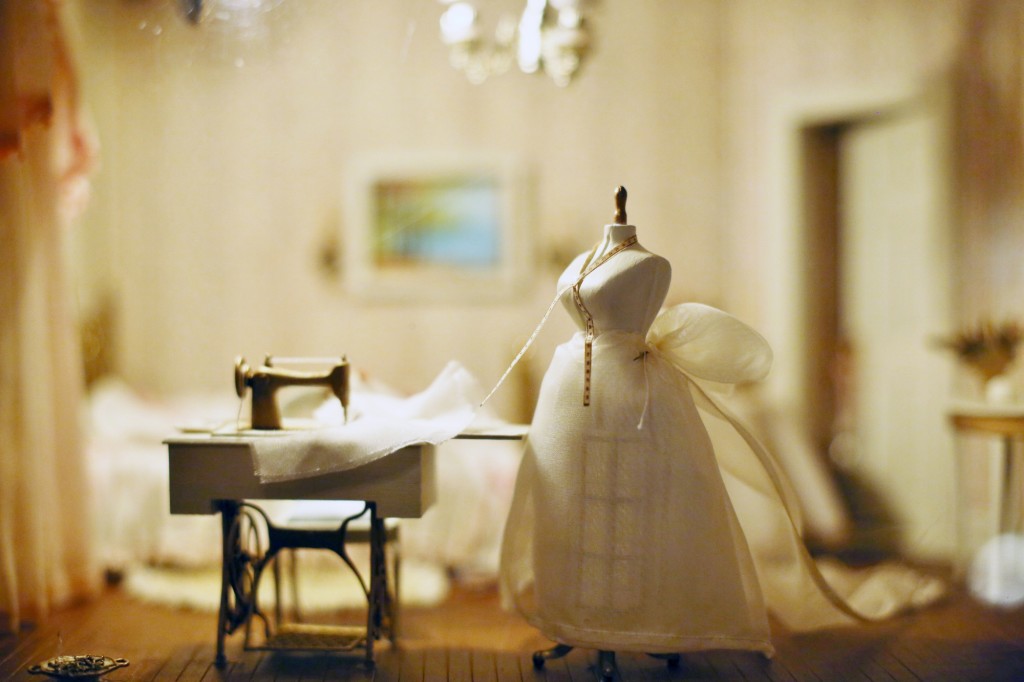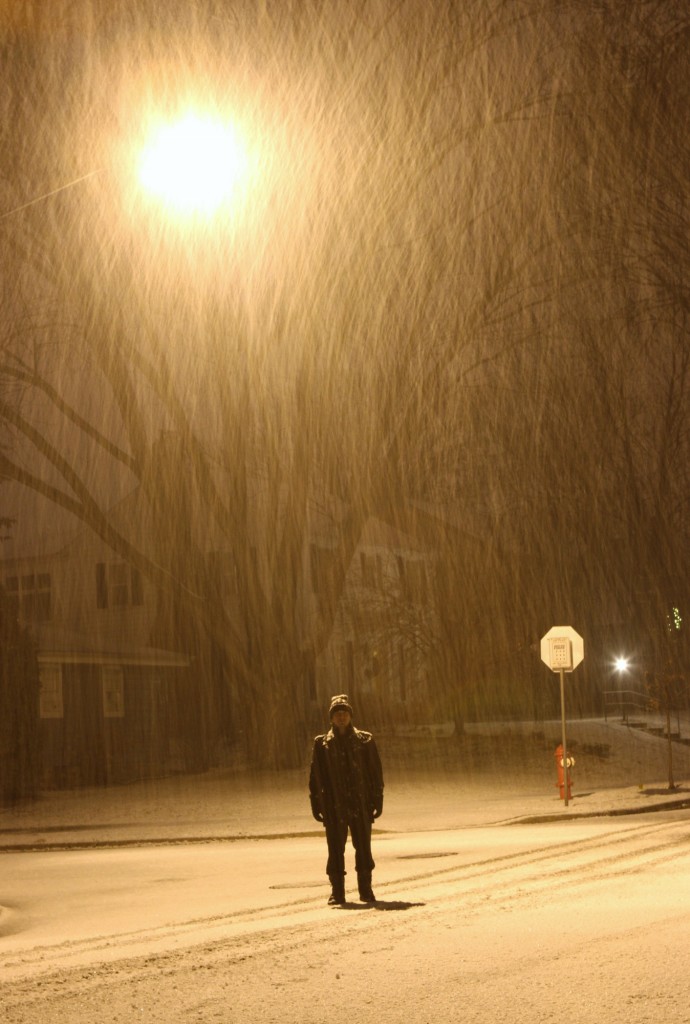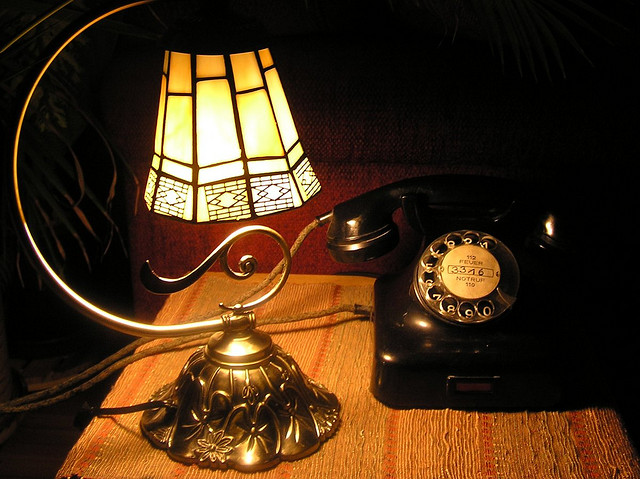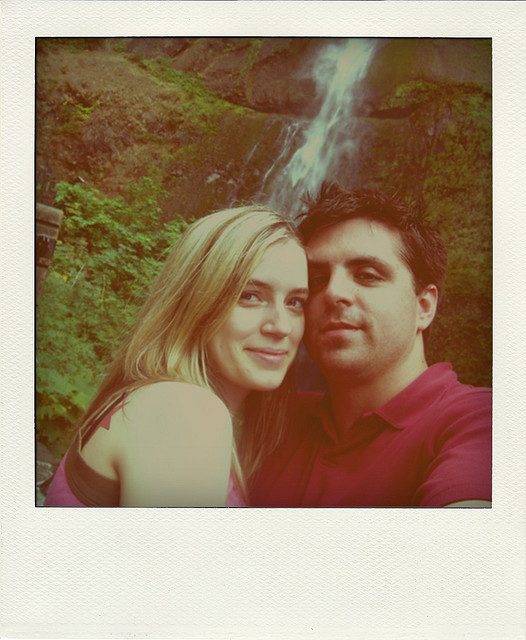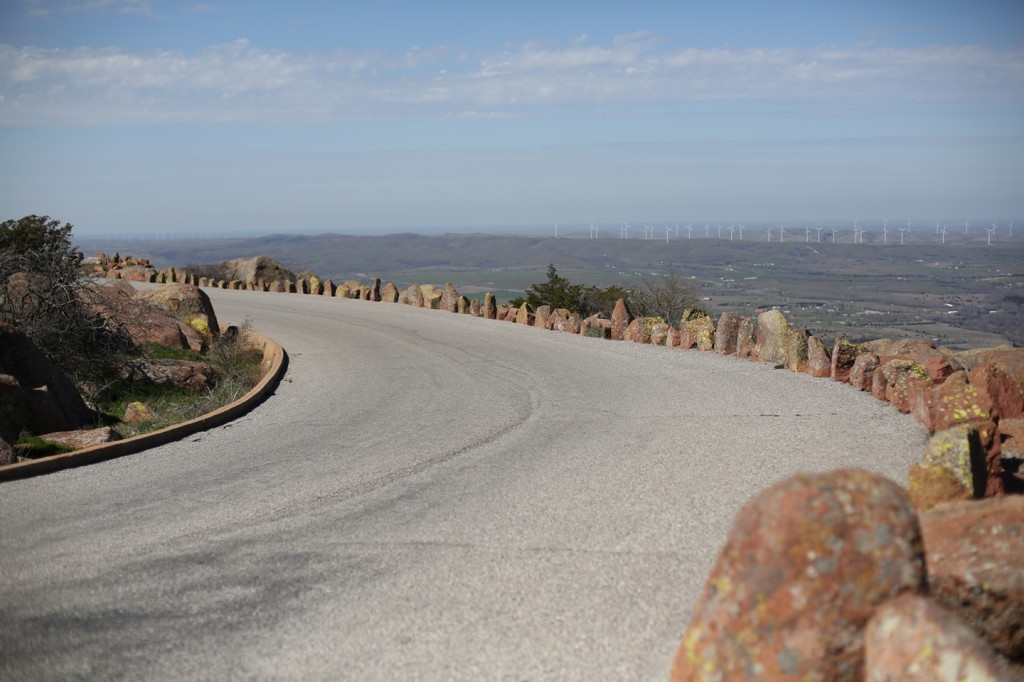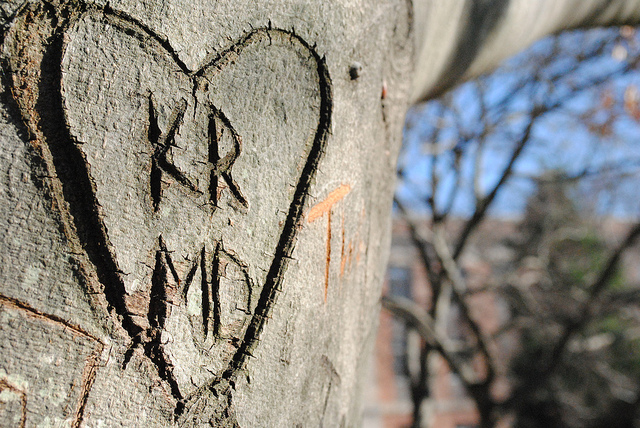
By Judith Sanders
I’m fortunate to have a child who shares my aptitude for schoolwork. Before my Yale cohort and I had children, we probably assumed they would all resemble us in that regard. After all, it was our defining characteristic, our common denominator, the reason our disparate selves had been gathered at Yale from across the country and the economic spectrum. But I don’t recall that we thought about children for a nanosecond during our “bright college years” in the mid-seventies, caught up in our studies and each other—not to mention feminism, gay rights, all the rapidly changing social mores and dwindling turmoil of the sixties. Also we expected, as Dylan nasally wished for us from every turntable, that we would stay forever young.
Well, we didn’t, and for most of us, children eventually took center stage in our lives. And in the way of children, they exploded our assumptions and insisted on becoming their own unique selves. By now, three decades later, many are interesting grown-ups, making contributions, passionate about their work, etc., but not all are scholars. I’m guessing from anecdotal evidence that the regular percentage has coped with learning disabilities. But some of us—those who somehow passed down the gene that enabled us to fill in the right circles on the SATs and forgo the dubious thrills of teen social life to stay up late perfecting a proof—open a new chapter in our relationship with Yale: Parent of Prospective Applicant. So we return with the precious offspring in tow and set out on the Admissions Tour. As we revisit the scenes of our youth, compulsively checking for similarities and differences (Did frosh still streak? Was that an actual Women’s Center?), we wonder if the scholarly child would flourish among them as we had. Or had we? Had I?
We all know of alums who center their lifelong identity on their Alma Mater. I’m on the other end of the spectrum, one of those too occupied with family and house and work, work, work to dwell on college memories and youthful folly (the bad boyfriends, the risky behaviors, the squandered time). But on the tour with my son last April, it all came flooding back: I could have navigated blindfolded and backward from Commons to the Sterling Library Periodicals Room, had such a stunt been required. Yet the campus key that I’d illegally preserved as a quasi-religious relic would, in these days of magnetic strips, no longer unlock the quads’ wrought iron gates. I was no longer a native but a visiting ex-pat, anonymous in a mob of photo-snapping tourists and non-alum parents escorting their own high-achieving offspring, who, in the way of teens, were pretending not to know us.
New Haven’s blocks surrounding Yale were all spiffed up. The corner where I remember being pelted with bottles by local youth expressing their sentiments about town-gown relations was now thick with cappuccino bars. But the campus itself seemed unchanged; like the Grand Canyon, the cathedrals of Europe, or The Rolling Stones, it had maintained its aura of timeless magnificence. Here still was the carved, buttressed, and gargoyled no-expense-spared beauty that had long ago promised me, like some shimmering Emerald City, a richer world than the flimsy ranch houses and malls in which I’d spent my childhood. The maze of courtyards, the gargoyles and crenellations, looked genuine, not one of those camp imitations in theme parks and Vegas; one didn’t question what Oxford-and-Cambridge was doing here off I-95. Perhaps that’s because these stately gothic buildings evoked Learning, stood as a solid tribute to an enduring intellectual tradition that bridged the pond. And like Daisy’s voice in Gatsby that sounded like money, their class credentials were solid gold.
However, partway through the tour the skies opened and drenched us, despite the garbage-bag ponchos the Admissions rep passed around, as if enacting a pathetic fallacy of dampened and disposable hopes: So few of those touring would actually “get in.” The residential colleges seemed to turn their spiny, mullioned backs as we trudged the grid of puddled streets to dutifully ogle the next tourist destination—from outside, or at most, the lobby.
Our student guide—more poised and polished in boots and beret than I remember any of us ever being, given our slavish devotion to tees and jeans, which to us warded off Caulfield’s phoniness—kept tossing off astonishing statements: We’re standing over the underground recording studio. If you’d like funding to go count birds in Guatemala, just ask. After your seminar with the former PM of England, you’ll head off to your poetry workshop with the winner of the Pulitzer Prize. The buildings might look much the same, but in inner sanctums inaccessible to us hoi polloi, apparently, Yale glittered more than ever. It was the court of the Medici, Versailles under the Sun King, the Manhattan Project, and the Brill Building all in one, an astonishing concentration of talent, resources, and power. The endowment, now a staggering nineteen billion, had mushroomed until it dwarfed the budgets of many countries. All to be expended on an select few, if any, of these ordinary, gawky, blank-faced youths withdrawing into their cell phones. It was unjust. It was obscene. Someone had said callously of the community colleges, of urban high schools, Let them eat cake. But what good to refuse to participate on principle? No sense in making an ineffectual one-person social statement on the back of my fledgling son.
Yale had been rich in my day—but not this rich. Still, even then, Yale with its regal formality had the power to make you feel self-conscious about being ordinary. Somehow a bowl of cornflakes had felt like an insult to the carved beams and proud banners of the magnificent dining hall. How could the mind wander off Plato or Rousseau onto a roommate’s rebuff while you were ensconced in a leather armchair in Sterling Library’s towering cathedral? And of course there was that omnipresent nagging doubt confided in late-night bull sessions: Had the Admissions Office made a mistake? I suspect that insecurity still haunts many of us who have gone on to an unglamorous middle age, who bend double to clean our own bathtub. Have we been worthy of the privilege once heaped upon us? Done enough? We’ve been tattooed on the forehead with a blue Y in invisible ink; it shows only in certain lights. At times it gives us entry into not-so-secret societies of privilege, but at times it’s a mark of difference that we hide, like Harry Potter’s scar, under our forelocks, when we fear accusations of being “elite intellectual snobs” or pointy-headed, Parsel-tongued double agents. Yale’s legacy is a mix of buoying self-confidence and corrosive self-doubt: It’s as if at the end of our lives, instead of having to account for ourselves to St. Peter at the Pearly Gates, we’ll face the Dean of Admissions. Did I want Yale’s curious combination of boost and burden for my child?
And what was Yale really like these days? After the tour, when we paused for lunch, Commons, with its lofty ceiling disappearing into shadows illumined by constellations of winking chandeliers, seemed like the Great Hall at Hogwarts. Mounds of food catering to every preference, ethnicity, and allergy appeared as if prepared by invisible house elves. The Hogwarts analogies (as on any Gothic campus) kept accumulating. The place was magically rich. Training the young wizards in the spells that would release power and wealth and happiness. Lumos et Veritas. For wands, they had their smart phones. But there is a Voldemort lurking, and his name is Stress. As I watched the young Hermiones, and doubtless a few Dracos, nourish their corporeal selves, memory supplied a reality check.
A former student of mine, now attending, had emailed that he lives on “coffee-drip life support.” His homework tends to be on the order of, read all of Karl Marx for tomorrow, then War and Peace for the day after. And that’s for just one of his five courses. But how to fit it in? He rushes from tea with The Tiger Mother to a seminar with Gaddis. He churns out articles for the prestigious Yale Daily News, known as “The Shark Tank” and a career pipeline to the New York Times. He added that elsewhere everyone’s very nice, down-to-earth—even if they just bought weed with a celebrity’s namesake or “weekended” with the son of an international playboy…but of course my young friend seldom has time to write at all. Voldemort has him and his cohort fully occupied with training for life on the Dark Side, the high-speed, eighty-hour-week rat race that passes for success.
Was it so different when we were there? The tales of the workload sound familiar—stressful and stimulating in the extreme. I too would have described my friends as down-to-earth, but I felt I’d lucked into an extraordinary sub-group—confident, ethical, funny, accomplished yet unpretentious people—for me, they formed a more enduring and valuable legacy than whatever I absorbed in the lecture halls. (Not that there weren’t pompous pricks around, and, more surprisingly, colorless blobs my parents would have dismissed as “nebbishes,” but these could be circumvented.) During my child’s “application process,” as I compared notes with my friends, I was surprised when one volunteered, “I didn’t take advantage”; another mused, “A smaller school would have helped me personally and professionally”; and, “I should have gone where a professor cared to know my name.”
To the extent it was impersonal like that—is it still? I was bamboozled by the morés of Yale’s predominant upper-class WASPs, whose academic skills, social graces, and stiff upper lips, not to mention sportsmanship and social drinking, had been shaped in private academies with weird secret-lingo names I was apparently supposed to revere but couldn’t pronounce or spell. (Choate?) I still remember my queasy disequilibrium at a reception for incoming students, when I first encountered people with last names for first names, ski-jump noses and lank light hair, smiling fixedly and exchanging banalities around a punchbowl of a yellowish fluid that fumed like Lestoil, but which apparently, unlike the students imbibing it, had a proper name: Tom Collins.
But no one at Yale cared to meet me where I was; no one felt any responsibility for helping a kid like me to adjust, academically or culturally—learn to write an essay, for example, much less eat an artichoke or cross-country-ski. (I would eventually flounder to competence in these vital life skills; by now I bet I could perform them simultaneously.) Yale had an Outward Bound approach, abandoning you in the woods and letting you find your own way, whether or not you’d brought your own internal compass. Maybe that toughens you, teaches self-reliance, but now that I’ve been a teacher for a long time, I’ve come to believe that those charged with adolescents’ development should calibrate the independence dose. I’d like to imagine that Yale’s teaching and advising have evolved in keeping with more nurturing modern values, but again and again, current students, their parents, and college counselors tell me, today’s Yale still works best for students assertive enough to take advantage of it. Otherwise, it can be now as it was for those of us who were unprepared then: overwhelming—and lonely. I recently heard stories of two students who retreated to their rooms for the first year or so, because they just couldn’t figure how to navigate.
Did I want all this for my child? He had the schoolwork gene, yes, but I wouldn’t say drive and initiative were his strong points. Would acceptance at Yale for him be a mixed blessing, a poisoned chalice, the gift of a white elephant, too much of a good thing? Wouldn’t he thrive in a smaller school, where his professors might not be ex-prime ministers but might care to know his name?
•••
The prospective-student tours tout the school and woo applicants to boost the US News and World Report rankings, to earn that coveted acceptance rate of below 7%. One Yale friend’s teen loves to needle his father, You’d never get in now. And it’s probably true for most of my cohort; I’m surprised I “got in” then, and that was before high schools required what for me would have been impossible stunts of physics and calculus, and admissions competition came from round the world. The acceptance rate in my day—not that we were much aware of it, in contrast to today’s applicants—was one in ten, not one in thirteen, and those ten were a much more local crew. Another Yale friend tries to tell people, going there back in our day was normal. You were a smart kid in high school, you got A’s, you applied, you got in. That matches my experience.
You filled out your application in ballpoint pen at the kitchen table. Maybe you doodled through a few questions in an SAT practice booklet—until you got bored and wandered off to watch I Dream of Jeannie or Get Smart. Once there, you studied and you played Frisbee. That contradicts what I wrote above, I know—but both were true. It was a Big Deal—and it wasn’t, not from moment to ordinary moment, and certainly not relative to today. And of course for my father-in-law’s generation of Old Bluesfrom the 1930s, it was entirely different—before the democratization of the student body in my era, you went to a feeder prep school and then—if you weren’t unlucky enough to be Jewish or female, not to mention being labeled, like a paint can, with a color—you went. My father-in-law reports that once there, a lot of studying wasn’t strictly necessary; he enjoyed many a gentlemanly game of dorm-room floor hockey between sailing excursions and cocktails at Mory’s.
On the rare occasions nowadays that I must divulge that long ago I went to Yale, people who are only aware of current admissions standards tend to do a double-take: I don’t look like some combination of Einstein and Bill Clinton. I suspect they conclude I’m like a former child star who has lost her dimples. So how are the current students affected by knowing they are, in this golden moment of their youth, the Chosen, the Select, the less-than-seven-percent solution? Does it make them feel arrogant—or humble? Talented or unworthy? Lucky or intimidated? Does it distort them, like fame did Michael Jackson and Elvis? Do they know how ridiculous it is to measure the worth of a person by high school grades and test scores? How crucial emotional intelligence is—not to mention kindness? And luck?
•••
At first the Admissions Office courts you, plying you with colorful brochures. In the lobby, as you wait for the info session to begin, a dazzling Bollywood-style video plays in an endless loop: happy, beautiful, multiethnic undergrads cavort in unison on a verdant hilltop and harmonize over swelling chords, “And that’s why we cho-o-ose Ya-a-ale!” On tours the guides flaunt the magnolia-hung cloisters, the “cloud-cap’d towers,” of the gorgeous campus. And then the tables turn. They solicit your application so they can reject you. We all know it’s bait-and-switch, seduce-and-abandon. But still, would a rejection of my son from my Alma Mater hurt—or rather, how much? Exacerbate my own lifelong sense of inadequacy over having once, long ago, been invited, for not very evident reasons, to the ball? Even worse, would my son be rejected not for his own credentials, but for mine—because I hadn’t been a “good enough” alum? Hadn’t donated a bell tower or a gym, hadn’t accrued enough accolades that redound to Mother Yale’s glory? That double-edged legacy of security/insecurity, that sick game of ranking self and others, lived on.
Well, rejection was what my son and I expected, given that’s the fate these days of over 93% of the twenty-seven thousand applicants. Of these, Yale accepts two thousand to fill fifteen hundred freshman seats. The odds seem better of going from cardinal to Pope. The Dean of Admissions claims he could fill a second class, and even a third, without a drop in academic “quality.” Although that’s not entirely what it’s all about. You don’t get in just because you are smart. For all the talk of the best and the brightest, the actual selection, for better and worse, as we all know, is controlled by multiple competing factors: athletics, geography, interests, gender, legacies, parental fame, affirmative action: “balancing the class.” Admissions can’t risk ending up with two dozen male bassoonists from North Dakota and no goalie for women’s lacrosse. A friend who is an Ivy professor reports a surprising range of academic ability in her classes, explicable in part by athletes with 550s on their SATS having unseated applicants with scores of 800. I myself interview applicants from among the one-hundred-twenty-five or so hopefuls spawned annually in my small city, of whom maybe one or two are selected. Many of my interviewees impress the hell out of me, having volunteered in senators’ offices, won science prizes, founded Ultimate teams, mastered microeconomics on their own, etc., but Yale doesn’t want to overstock from our outpost, and none of mine has ever made the cut. From them I have a small sense of how impossible the Admissions officers’ task is, making micro-distinctions among these superabundant deserving. Among these meritorious rejected could well be my son.
Fine. But the next step gets complicated. The Admissions Office might or might not choose my bright child to balance out the class in some mysterious way, but should he choose them? Would I even want my son to be tattooed with that blue Y?
Well, of course. Yale is fabulous. Incomparable. If the glass slipper fits, you marry the prince. You don’t look the gift horse in the mouth.
But what if it’s a Trojan horse? What if the prince is a jerk?
Why “choose Yale”? I recall only the Bollywood-style dancers’ conclusion in the chorus but not the supporting detail in the verse. In retrospect, I’m not sure I “chose” it at all; rather, I stumbled into it by dumb luck. My immigrant family had barely heard of it; my suburban public high school, as intellectually barren as the malls surrounding it, offered no college counseling. In a way that seems impossible to imagine now, I was entirely unaware of Yale’s cultural cachet: perhaps I offered Admissions a chance to fill out its ignorance quotient. I picked Yale from the Barron’s catalogue because the SAT scores matched mine, I didn’t need to take a plane, and—this was the clincher—I wouldn’t have to take math. And when I visited, I saw that the campus was pretty. And I was so fed up with being ostracized at school and belittled at home for being a smart girl, that I was pumped to prove that dammit I really was just as smart as boys—so Yale’s newly coed status appealed.
But once admitted, and somehow lasting through to graduation, did I end up reaping benefits from my accidental good fortune? For me as for some of my friends, going to Yale actually held us back professionally. For example, no professor would sponsor my thesis on contemporary women’s poetry, and no campus organization would support my summer research into the effects of The Hyde Amendment. My “women’s interests” put me outside the fold. And when I contacted the famous professor tasked with advising about grad school in English, in a phone call that lasted under a minute, she didn’t feel obligated to find out anything about me, including my name, but just delivered a boilerplate “Don’t.” Well, I tunneled under those roadblocks—found a grad student to supervise my thesis, for example, and had a grand time in grad school anyway—which perhaps was character-building. But it wasn’t optimal— it wasn’t “just ask” or the Old Boys Network or the door-opening letter from a Big Name—wasn’t the one-way ticket to opportunity that a Yale acceptance implies.
Subsequently, has the prestige factor affected my career? “Yale” on the CV has served as a handy shorthand for “smart” and “competent” when needed—maybe when applying to grad school or jobs, or needing acceptance from future in-laws, themselves Ivy grads and skeptical of my “Joisey” background. But it has also been interpreted as meaning “over-qualified” and “snooty.”
Every place I’ve worked—and granted my career had been spent in the un-prestigious, woman-heavy, underpaid lower levels of publishing, academia, and education—my colleagues have gone to a variety of colleges. How well or poorly we do our jobs doesn’t correlate with where we received our diploma. The “Ivy Effect” seems to wear off minutes after graduation—or at least with the subsequent credential of grad school or first job. A savvy friend, however, tells me that if you want to work at Goldman, you must go to Harvard—that certain schools and frats are still feeders for certain firms. So maybe if my son were to undertake a career in such a field, where he went to college might make more of a difference in his work-life than it has in mine. But among his cohort, anybody in the biz knows there aren’t enough chairs in the Ivies for those who on paper deserve them—and that plenty have spilled over into other institutions. Paradoxically, the absurdly competitive admissions rates should make the label mean less and less, since to a certain extent it’s obtained not by merit alone, but by chance.
And yet…you spend formative years with all those bright people, among all that sculpted stone and old leather and leaded glass, with ready access to Old Masters and the Gutenberg Bible; you get fed lines in every speech about how you are a future leader—and without realizing it, you imbibe the brew from the punchbowl—or at least inhale the fumes. A voice you are ashamed of starts whispering poisonous things you want to ignore; on some level you start to believe Yalies really are the smartest. The snobbery has infected you, but you struggle to turn a deaf ear and let the child find his own way.
•••
The Admissions Office’s noncommittal response to his carefully crafted application? Waitlisted. The limbo between the alleged heaven of acceptance and hell of rejection. In which 1001 lost souls are condemned to languish, possibly until the last trump shall sound, in far-off August.
If you’re waitlisted and you want to “get in,” you are supposed to demonstrate your “passion,” your undying yearning for admission. Should he? Should he continue to struggle to find the magic formula, the Open Sesame, that would open the door to the treasure cave? Should I prove I was a loyal alum by walking blindfolded and backwards from Commons to the Periodicals Room, penitently holding my ancient key aloft, since I couldn’t come up with a bell tower? Is this a case of beware-what-of-you-wish-for? On the tour, the windowless Secret Society buildings had looked like tombs. What kind of crazy world even needs Secret Societies? Especially with ghoulish names like Skull and Bones? Should we turn and run screaming?
Yale, I’d wait-list you too; I’m not sure about you, either. Not sure I want to leave my first-born on your temple steps, to be brainwashed into worshipping your narcissistic god.
Given my own experiences, that is. From this great distance, peering back through the thickening fog of years: It was the best of times; it was the worst of times. It was wonderful; it was awful. I felt connected for the first time in my life, at last among fellow geeks, dorks, grinds, and nerds—a whole tribe of my gung-ho people: student council presidents, editors in chief, musical leads, team captains, teachers’ pets, Most Likely to Succeeds.
I also felt miserably alone, as a lower-middle-class Jewish girl in an upper-class WASP and historically-male institution. As an artsy-intellectual dreamer, in a sea of pragmatic, goal-oriented future doctors (forty percent), lawyers (forty percent), and businesspeople (ten percent). I was thrilled, I was entranced; I was anxious and alienated, but in the throes of adolescence, I might have felt that way anywhere. Even if a professor had wanted to know my name, I might not have wanted to tell it; on some days, I might not have been able to summon it up. Even if I’d gone someplace where the professors cared more to teach than profess, where a woman writer or two had been deemed worthy of a place in the English Department intro syllabus.
Elitist, sexist, snobby, cold. On a rainy day like that of our tour, the campus’s stone walls can look like an impregnable fortress, a prison.
On the other hand, when I am with my Yale friends, I feel lit up along all my synapses. How much they love to talk, learn, joke, explore. To extract all possible information out of every conversation, every situation. How much they do, how fully they live. Not that other people don’t, of course—my own non-Yalie husband, for example—but the concentration is high in this particular group. And even in circles beyond them. When I volunteer at the local food bank on the annual Day of Service with teams of Yalies of all ages, the clients benefit from the food, but I’m fed by the talk. While we’re bagging lumpy yams rejected by supermarkets, or stacking sacks of almost-outdated frozen chicken, the talk ranges from local linguistics to firehouse norms to recent biographies to civil liberties to critiques of the flawed food-bank system in which we’re participating. Talk that bespeaks passionate engagement with wide worlds beyond the immediate and personal.
I’d grown up with talk that turned on venting personal grievances, so I’d quickly had to pick up two foreign languages at Yale. I don’t mean the French and Italian I mangled in class: I mean Small Talk and Big Talk. If I’d at first recoiled from punchbowl Small Talk—which I came to understand as the art of revealing nothing while jockeying for dominance—I’d immediately thrilled to Big Talk. I had first basked in Big Talk from the professors, those distant stars shining on their lecture platforms. How I’d thrilled to their precise, informed, wide-ranging eloquence. I took notes as fast as I could, eager to have their brilliant locutions pass through my hand, as if doing so would incorporate even a spark of their energizing fire, their blazing intellectual vitality, into my forming, nebulous self.
But as for what I’d call teaching, there hadn’t been much. It was rather like watching a TED Talk online.
•••
My son’s fortunate facility with schoolwork earned him acceptance at several outstanding liberal arts colleges, where the focus is on teaching undergrads as well as research. I know he could get a fine education and meet wonderful friends at any one of them. We do elite private colleges well in this allegedly meritocratic country; those fantastical, top-heavy, unfair endowments ensure both fabulous resources and financial aid for the fortunate few. From where I sit deep in middle age, it all sounds idyllic: Four years of not having to mow your own lawn or clean your own toilet or even make your own lunch, much less earn your own living. Four years of learning for learning’s sake. Four years of dancing along the Brownian zigzag of your own evolving interests, contemplating big ideas, exploring impractical subjects. Of imagining that the future is bright, that you’ll live forever, that you matter—if being young or some more random catastrophe doesn’t get in the way. (For now I’m averting my eyes from the dark underside—the hook-ups, the frat-party assaults, the beer pong, those toxic side effects of competition and stress, of worries about the future in a warming, overcrowded, debt-ridden, terrorist-haunted planet. On top of dislocation and that state of temporary insanity called youth.)
But despite—or perhaps because of—his mother’s poorly-concealed preference (formed not because of my own irrelevant experience, I keep hoping, but because of who he is) for him to attend one of these smaller, allegedly more nurturing schools, my son has decided not to withdraw from Yale’s waiting list.
“Mom,” he says, “when I visited, I felt like I fit in.” He assures me that he is accustomed from his rigorous prep school to managing a stressful workload and taking initiative. He applied because he was attracted by Yale’s emphasis on service, which my student confirms, writing that “Yale consciously grooms public servants, so that to those whom much is given, much is expected”—which, to whatever extent it’s true, is surely a far better reason than mere prestige, not to mention pretty architecture and the lack of a math requirement. So while we wait, I try to remember that whom you marry, who your children turn out to be, how everybody’s health holds up, how the economy fares, whether history leaves you alone…are all far more important to your happiness, to shaping your life, than your Alma Mater is.
And yet…although I still suspect high-powered Yale would be wrong for my son, despite his assurances and sound reasoning, part of me can’t let go of the idea that if he is lucky enough to get in, he just can’t refuse.
Do graduates of other colleges have this problem—or rather, do they have it this bad? While seeing all the flaws, the occasions on which the emperor has no clothes, can they too still not let go of the brand loyalty, the fatal attraction, the blind patriotism that defies every avowed principle? While it’s hard not to be blinded by Yale’s glitter, I have to wipe the stardust from my eyes. In the grand scheme, it doesn’t matter so much which of these great schools he attends. It’s really all about match, not prestige—about where he can flourish, where he can most readily locate those nutrients that will help him become himself.
I know that, and yet…
Yale’s a smart place, but it makes you stupid about one thing. The worst of its complex legacy, I realize, is snobbery about itself.
I don’t know if my son will get in, or if he does, what he’ll decide to do. This story ends with a cliffhanger.
•••
JUDITH SANDERS, a writer and former English teacher, lives in Pittsburgh. An update on how it all went down: “In June, my son received a letter from Yale informing him that the incoming class was now full, so his application was no longer being considered. As we discussed this outcome, I mused that it was ironic that he, more academically talented and better prepared than I had been, couldn’t go while I could. ‘Well, Mom,’ he said, ‘different times.’ Wise kid. He’ll be fine.”

 Follow
Follow
